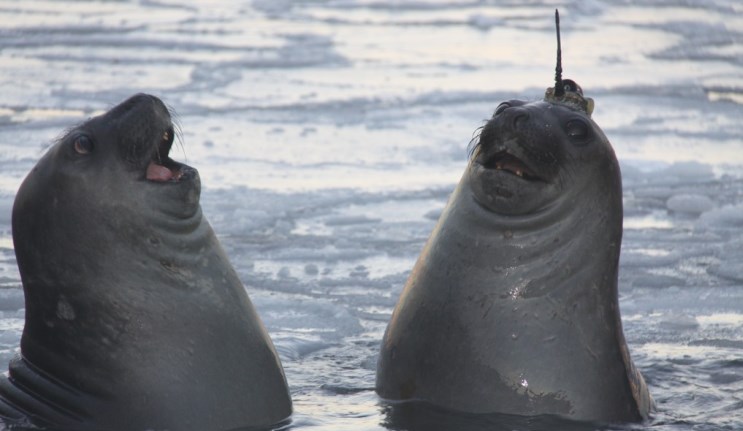
RESEARCH NEWS
Seals help plug Antarctic water mystery
Elephant seals have helped scientists to demonstrate that fresh water from Antarctic’s melting ice shelves slows the processes responsible for the formation of deep-water ocean currents that regulate global temperatures.
The study was led by Dr Guy Williams from the Institute of Marine and Antarctic Studies and Antarctic Climate and Ecosystems CRC together with Professor Rob Harcourt from Macquarie’s Department of Biological Sciences.
Dr Williams says the findings raised questions about potential future changes in global ocean circulation patterns.
“Antarctica and the Southern Ocean are like a beating heart, producing deep and powerful currents of cold water that drive global ocean mixing and regulate atmospheric temperatures,” Dr Williams says.
“These currents begin with intense sea ice formation around the Antarctic continent in winter, which creates cold, salty and dense water that sinks and flows away from the continent in large volumes.
“If this production of Antarctic bottom water weakens, it leads to changes in global ocean circulation patterns that can, in turn, lead to changes in the global climate.”
Tweeting seals
Since 2011, elephant seals at Davis Station have been fitted with oceanographic sensors as part of Australia’s Integrated Marine Observing System (IMOS), supported by Australian Government.
When the seals surface, their sensors relay information back to land via satellite, and the near real-time data is made available via the Global Telecommunication System of the World Meteorological Organization for immediate use.
The oceanographic data collected by the seals is also used for ecological research into their behaviour and aids in conservation.